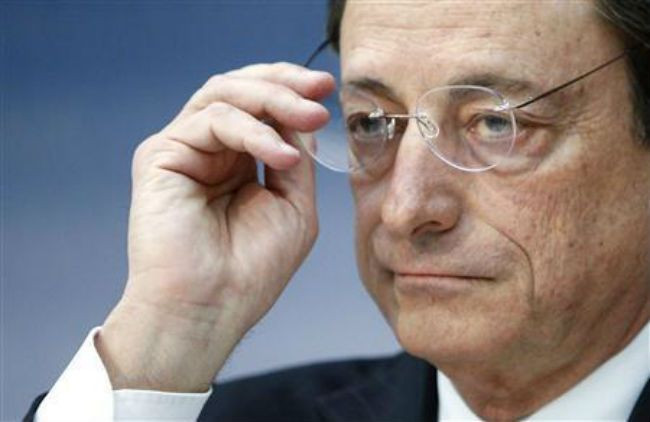
Key Euribor bank-to-bank lending rates fell on Friday, a day after European Central Bank President Mario Draghi said the bank discussed cutting interest rates at its December meeting but in the end decided to leave them unchanged at 0.75 percent.
Draghi said on Thursday there had been "a wide discussion" on rate cuts during the Governing Council meeting, which fuelled expectation that the ECB was ready to lower rates further in the coming months.
The central bank also announced a six-month extension to its full-allotment policy in all liquidity operations.
Bank-to-bank lending rates have fallen sharply since November last year when ECB plans emerged to flood the banking system with ultra-cheap, three-year cash.
But the impact of the excess liquidity has now been largely priced in. Uncertainty about whether the ECB will cut official interest rates further, helped market rates find support over recent weeks.
On Friday, three-month Euribor rates, traditionally the main gauge of unsecured bank-to-bank lending, fell to 0.187 percent from 0.190 percent.
The six-month rate eased to 0.330 percent from 0.339 percent while the one-week rate bucked the trend and ticked up to 0.077 percent from 0.076 percent. The overnight Eonia rate rose to 0.072 percent from 0.069 percent.
Dollar-priced bank-to-bank Euribor lending rates also fell, with three-month rates falling to 0.57231 percent from 0.57462 percent and one-week rates down at 0.34692 percent from 0.34846 percent in the previous session.
The ECB's decision in July to stop paying interest on overnight deposits paved the way for further declines in euro-denominated rates by removing the 0.25 percent floor for the money market.
The amount of excess cash in the euro zone banking system is still extremely high at 614 billion euros, according to Reuters calculations.
With that figure set to remain high for the foreseeable future, money market experts have focused on whether the ECB could copy Denmark's example and start charging banks to deposit cash overnight.
Policymakers showed initial interest in the idea but some have since said such a move could be problematic.
Asked about the idea on Thursday, Draghi said: "There is nothing new to report ... we are operationally ready, but the discussions in this respect did not go into any depth."
"We briefly touched upon the complexities that such measure would involve and on possible unintended consequences. But we did not elaborate on this any further," he added.
© Thomson Reuters.




